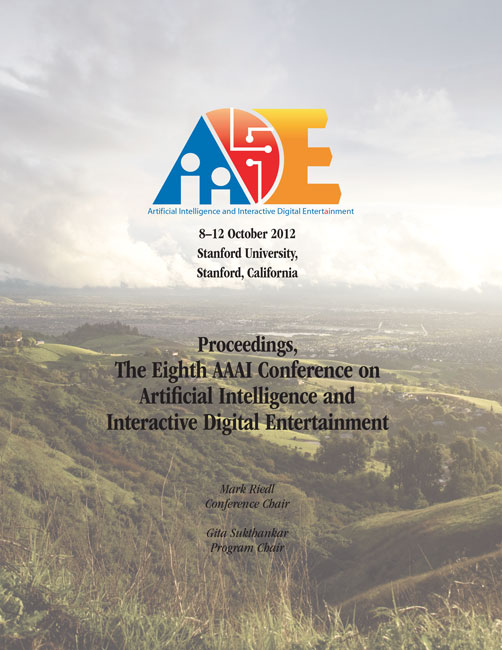If Not Now, Where? Time and Space Equivalency in Strategy Games
DOI:
https://doi.org/10.1609/aiide.v8i1.12506Keywords:
spatial-temporal reasoning, spatiotemporal reasoning, tower defense, video games, strategyAbstract
Spatiotemporal reasoning is a fundamental contributor to effective problem solving. In an effort to design better problem-solving agents, we examined and evaluated the strategies that humans use to solve Tower Defense puzzles, a complex and popular class of real-time strategy games. A consistent and unexpected finding was that humans frequently treated time and space as equivalent. Players stated temporal goals but solved spatial problems. An analysis of human data and computer simulations showed that re-representing temporal problems as spatial problems was beneficial, but treating the two separately can lead to higher scores. The work presented here holds several possibilities for level designers and others who design and analyze maps and spatial arrangements for domains requiring strategic reasoning.

